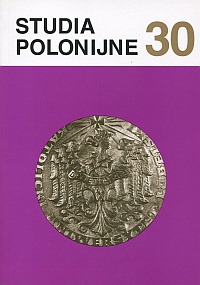The role played by Polish Roman-Catholic parishes in the life of the Polish community in Chicago in the 19th century
Main Article Content
Abstract
Polish parishes and priests working in them shaped the image of the Polish emigration in America in the 19th century. The parish was not only an institution with a purely religious character, allowing to realize one's spiritual needs, making it possible to participate in religious services, to receive sacraments and to learn the truths of faith. It was definitely something more. It formed – following the example of the ones existing on the territory of Poland – constant family-neighborly relations. Owing to this, a man who came to an unknown place and was anxious about his future practically felt at home; he was among „his own folk”. Joseph Wytrwal even defined the parish as „Poland in miniature”.
With the help of the school, and also of numerous organizations that were developed in the parish, it organized the emigrant’s life practically from the moment of his arrival to the town. It ensured him at least primary education. It integrated emigrants and allowed both maintaining the Polish ethnical awareness by using the Polish language and maintaining the customs and traditions brought from Poland. It made it possible to participate in cultural events and in social life. It helped fill in the young and adult people's free time. It allowed being involved in the work for the whole parish community. It may be said that parishes played the main role in the functioning of the Polish community in Chicago, or more properly, that if fact they shaped that community.

